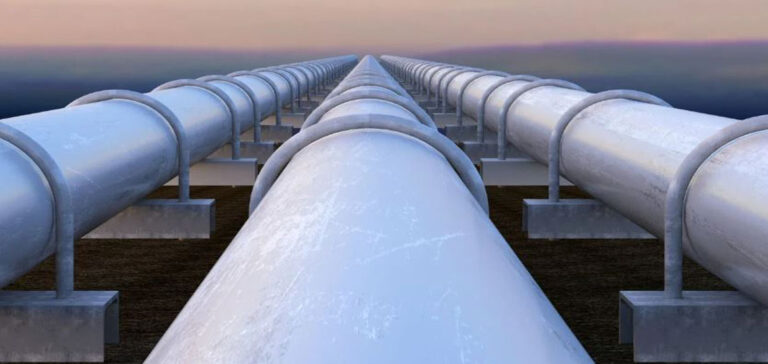Turkmenistan on the Way to Europe boasted on Wednesday of its ability to supply gas in the event of the construction of a trans-Caspian pipeline. This country is trying to relaunch a project in the wake of the war in Ukraine.
A promising trans-Caspian gas pipeline project
President Serdar Berdymukhamedov, quoted by the state newspaper “Turkmenistan neutral,” asserted that “the trans-Caspian pipeline (…) will supply natural gas to the European states.” If built, this pipeline would link Central Asia across the Caspian Sea to Azerbaijan in the Caucasus. Turkmen gas would then be connected to the Turkish network and shipped to Europe.
This project, known by the acronym TCP, has not yet seen the light of day. This was due to opposition from Russia, the country bordering the Caspian Sea, which did not want to compete with Turkmenistan, a former Soviet republic, in supplying the European market. However, the war in Ukraine has led the European Union to seek to break its dependence on Russian hydrocarbons. This revives the idea of the TCP, even if no concrete plans for financing the project have been put forward to date.
Opportunities in Turkmenistan
The Turkmen president also assured that his country was “open to cooperation in the gas sector.” Yet Turkmenistan is one of the most closed states in the world, and suffers from a lack of investment in infrastructure dating in part from the Soviet era.
Turkmenistan is an authoritarian republic that has been ruled for sixteen years by the Berdymukhamedov family. According to estimates, it has the world’s fourth-largest gas reserves, which it exports mainly to China, but also to Russia, Azerbaijan and Uzbekistan.
This wealth of natural gas offers Turkmenistan considerable economic opportunities. If the trans-Caspian gas pipeline project is successful, the country could become a major player in Europe’s energy supply, helping to diversify the region’s energy sources. This would also reduce Europe’s dependence on Russia for its natural gas supplies.
Geopolitical challenges
However, it is important to note that the TCP project faces complex geopolitical challenges. Moreover, Russia has long exercised a significant influence in the Caspian Sea region. It has voiced its opposition to the project, fearing direct competition for the European market. This Russian opposition has been a major obstacle to the completion of the trans-Caspian pipeline in the past.
The war in Ukraine has changed the face of Europe. This is prompting the European Union to explore alternative options for securing its energy supply.
In short, Turkmenistan is positioning itself as a key player in the debate on Europe’s energy supply. The trans-Caspian gas pipeline project, while facing geopolitical challenges, is attracting growing interest as Europe seeks to diversify its energy sources. It remains to be seen whether the parties involved will succeed in turning this ambitious vision into reality.
Turkmenistan could play a key role in ensuring Europe’s energy stability. This is a concrete example of the geopolitical and economic issues surrounding the global energy supply. Completion of the TCP project would pave the way for closer international cooperation. The project also encourages a welcome diversification of energy sources for Europe.





















